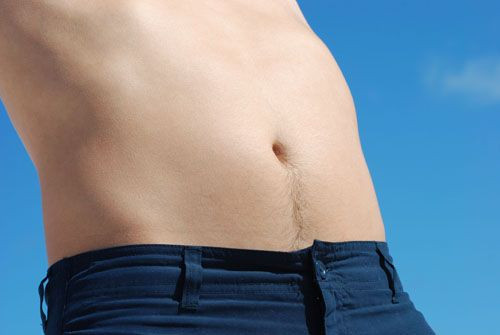Gut Bacteria From Obese People Make Lab Mice Fat: Could Changing Your Stomach Microbiome Make You Skinny?

Gut bacteria can transfer the physical and metabolic traits of being skinny or fat, according to new research in the journal Science. The findings may open the door to new personalized food-based therapies and probiotics for treating obesity.
An expanding body of evidence is supporting the idea that microbial composition of the intestines — the gut microbiome — has a major influence on overall health, including mental cognition and the heart.
However, most research has centered on the emerging relationship that gut bacteria has with weight gain and obesity. Just last week, a study from Belgium found that Danish people with certain species of intestinal microbes — “good bacteria” — have lower rates of obesity and associated metabolic conditions like diabetes and cholesterol problems.
Finding The 'Skinny Bacteria'
To assess whether there was a direct connection between gut flora and developing obesity, researchers at the Washington University recruited pairs of twins — identical and fraternal — where one sibling was significantly skinnier than the other. Their rationale was that twins should have fewer dietary and lifestyle risk factors that explain differences in obesity, leaving room for an exploration of host biology.
Gut bacteria were collected from each twin and given to germ-free mice. In other words, the intestines of the recipient mice only contained bacteria from either an obese twin or a lean twin.
"The first thing that Vanessa Ridaura [the first author] identified in these mice, which were consuming a standard mouse diet, was that the recipients of the obese twins' microbiota gained more fat than the recipients of the lean twins' microbiota," explained head scientist Dr. Jeffrey Gordon, director of the Center of Genome Sciences and Systems Biology at Washington University School of Medicine.
Both groups of mice consumed the same amount of food, so the discrepancy had to be caused by the gut bacteria changing their internal metabolism, continued Gordon. His team found that the resulting obese mice produced more branched-chain amino acids, which are also made in higher levels in overweight humans.
What’s fascinating is that when lean mice were housed with obese mice, the fatter rodents lost weight, due to the “skinny bacteria” being swapped between them. Deeper analysis of the microbial communities tracked down the weight-benefiting germs and revealed that they belonged to specific members of the phylum Bacteroidetes.
Bacteroidetes are pervasive in American tummies, "so, why isn't there an epidemic of leanness in America?" Gordon asked rhetorically.
The researchers found that the weight loss only occurred when the lean and obese mice were fed a healthy diet that was high in fiber and low in fats. When the new housemates were fed a typical Western diet, both lean and obese mice appeared to be unaffected by the others’ gut microbes.
This finding argues that swapping good bacteria wouldn’t be enough to make a person lose weight unless there was a corresponding change in diet.
"We now have a way of identifying such interactions, dependent on diet, and thinking about what features of our unhealthy diets we could transform in ways that would encourage bacteria to establish themselves in our guts, and do the jobs needed to improve our well-being," concluded Gordon. "In the future, the nutritional value and the effects of food will involve significant consideration of our microbiota—and developing healthy, nutritious foods will be done from the inside-out, not just the outside-in."
Source: Ridaura VK, Faith JJ, Rey FE, et al. Gut Microbiota from Twins Discordant for Obesity Modulate Metabolism in Mice. Science. 2013.



























